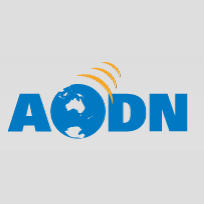Brief description
We have developed a framework for collating and presenting information on the values of marine and coastal ecosystems to relevant stakeholders for planning and decision making tasks in New Britian, Papua New Guinea. The framework includes the following design criteria: • Includes a comprehensive range of value types, including socio-cultural, economic and ecosystem values, and all four ecosystem services types (provisioning, cultural, regulating and supporting). • Has the ability to reflect the different value (scalar) contexts of local, Provincial and National stakeholders. • Is spatial, being based on ecosystem feature layers. • Has the capacity to be spatially comprehensive, by including a full range of ecosystem features in the focus area. • Does not rely on monetisation or attempt to calculate a single value (e.g. TEV), but rather relies on a plurality of values. Attempts to presents information in a transparent, relevant, replicable and credible way. Our approach is built on contemporary approaches to the valuation of ecosystems for planning and management. This includes the expression of pluralist values and appropriate consideration of scale. Pluralist values recognises that there is value in reflecting a broad range of value types when considering the value of ecosystems across ecological, socio-cultural and economic values. There are four categories of values represented in the framework: ecosystem structure and processes (biodiversity, productivity, connectivity); ecosystem regulatory functions (climate, pest, and pollution regulation; hazard protection); ecosystem goods and services supply (food, fibre and fuel); and shared social values (spiritual, aesthetic, recreation, existence values). This represents a comprehensive range of value types as defined by a range of valuing frames, including ecosystem services, economic valuation and socio-cultural valuing approaches. A fundamental basis of our framework is that it is feature based – including both ecosystem and man-made features. The full range of socio-cultural, economic and ecological values can then be associated with that feature, and these can then be overlain in spatial systems to produce a comprehensive spatial valuation. In addition, the socio-cultural values associated with man-made features (such historical wrecks, buildings etc.) can be captured in the spatial values system.Lineage
Progress Code: completed
Maintenance and Update Frequency: asNeeded
Notes
CreditThis project is part of the Australian Government’s commitment to the Coral Triangle Initiative (CTI) Coral Reefs and Food Security. It is funded by the Australian Government through the Department of the Environment (DotE) and CSIRO Oceans and Atmosphere. The authors would like to thank the many Papua New Guinea and Solomon Islands stakeholders that have contributed to the development of the Draft Values Framework to date.
Data time period: 2017-05-01 to 31 03 2017
text: westlimit=148; southlimit=-7; eastlimit=153; northlimit=-3.5; projection=WGS84
Subjects
Countries | Papua New Guinea |
Earth Science | Agriculture | Agricultural Aquatic Sciences | Fisheries |
Earth Science | Biosphere | Aquatic Ecosystems |
Earth Science | Human Dimensions |
Earth Science | Human Dimensions | Economic Resources |
Earth Science | Human Dimensions | Socioeconomics |
biota |
economy |
environment |
society |
User Contributed Tags
Login to tag this record with meaningful keywords to make it easier to discover
Other Information
Identifiers
- global : ae35e47d-f9a6-46da-95bf-e2e6a5dc1bf6


